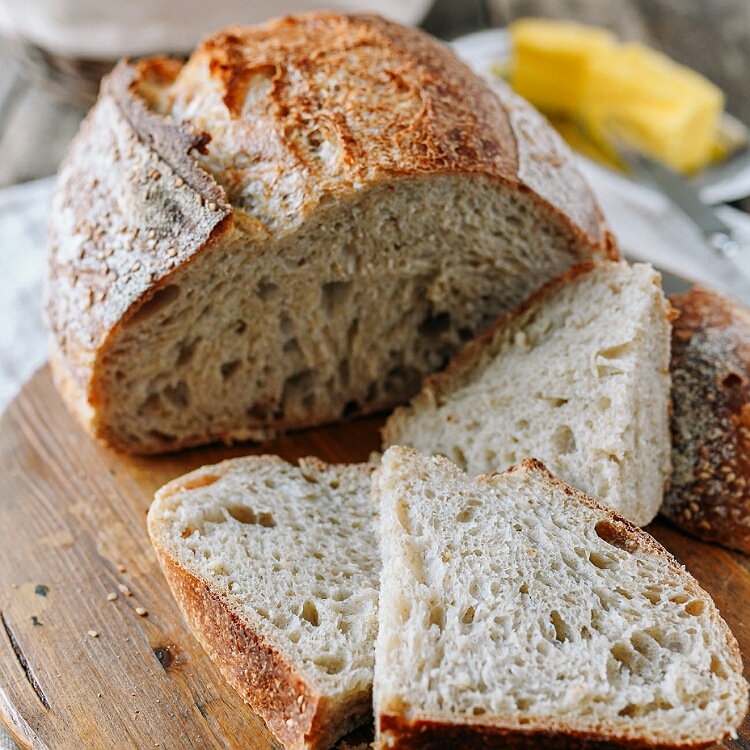Sourdough bread is a special type of bread the dough of which is fermented naturally. It has more minerals, vitamins, and other nutrients compared to the regular bread. Therefore, it is healthier and better than the normal breads that one consumes. What is its processing? What are the nutritional facts and health benefits related to it?
Sourdough bread
This bread is a unique type of bread in which the baker does not use baker’s yeast. Instead, the dough is left to ferment naturally. A fermenter starter is added to the dough of the bread in order to initiate and fasten the fermenting process. This fermenter starter is usually a mixture of dough flour and water. Wild yeast and wild lactobacilli present in the flour are responsible for bringing about the fermentation and sourness of this bread. The amylase of the flour breaks down the complex carbs into glucose and maltose, and lactic acid is also produced. This imparts the sourness to the bread. Taste-wise, the bread is similar to the regular breads but has some added tanginess to it that enhances its flavor.

Sourdough bread also has far more minerals, vitamins such as B complex vitamins and other phytonutrients compared to the bread that ferments using baker’s yeast. This bread is also called Pain au levain. The acidic conditions of the dough as well as the bacteria in it break down the proteins. Due to this, the gluten in this bread is weaker than that in the normal dough with baker’s yeast. It is also denser in consistency and might take longer to ferment than that taken by the regular bread dough.
Nutritional facts
This bread has more nutrients than the regular bread. 1 slice is around 50 grams and the calories in 100 grams or 2 slices of this bread are 289. Fat amount is 1.8 g and of this saturated fat is 0.5 g. There is no cholesterol. Carbs amount to 56 grams and sugar is 2.6 grams. Fiber is 2.4 grams and protein is 12 g. Sodium is 513 mg and potassium is 128 mg. There is calcium, iron, magnesium, manganese, copper, niacin, and vitamin B6 in it.

This bread gained popularity during the lockdown of covid-19 pandemic when shortages of baker’s yeast emerged. This dough requires no baker’s yeast and can be made at home easily with not much efforts. The bread also has a lot of antioxidants and can thus help in slowing the aging process, checking on inflammation and blood cholesterol, and improving heart health. The phytic acid present in grains and its flour is an anti-nutrient. It decreases the absorption of other nutrients. But in sourdough bread, the acidic pH lowers the level of this phytate and hence the absorption of its nutrients is better.
Health benefits
The sourdough bread is easier to digest. The acidic medium neutralizes the phytates and hence digestion is better. Also gluten protein is broken down and it is weaker than that in normal breads. This too puts less strain on the digestive process. Additionally, this bread has prebiotics. This is an indigestible fiber that is food of the healthy bacteria in the gut. Therefore, the gut gets a healthy microbiome and this also aids digestion.

Also, read Healthy breads vs unhealthy breads. Which breads to avoid?
Since sourdough fermentation breaks down the complex carbs, the glycemic index of it is lower than the dough made using baker’s yeast. Hence, this bread is better in smooth control of blood sugar levels especially in diabetics. This bread also lowers blood cholesterol and relaxes the blood vessels. It supports heart health and the higher antioxidants also reduce the risk of cancer. The bread slows the aging process.
